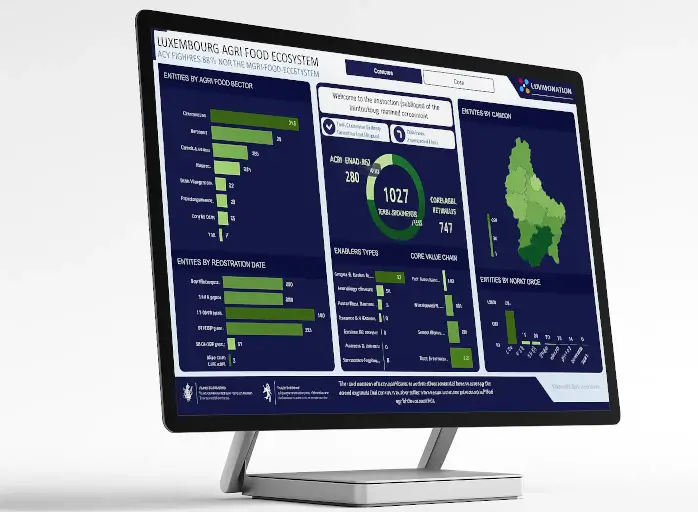

Agri-food
Luxembourg’s agri-food ambitions are closely aligned with the European Union’s Farm to Fork Strategy and the Common Agricultural Policy, both of which aim to ensure fair, healthy, and environmentally friendly food systems. The country is working to modernise its food systems by promoting sustainable agricultural practices, supporting local production, integrating new technologies, and fostering resilient food value chains.
To guide this transition, it is crucial to build a shared understanding of the actors and dynamics shaping the agri-food sector. In this context, we have developed a data-driven mapping that identifies public and private stakeholders active across the agri-food value chain that transforms agricultural products and contributes to the agricultural value.
Understanding and exploring Luxembourg’s agri-food ecosystem
As global challenges such as climate change, biodiversity loss, and resource scarcity intensify, the agri-food sector is undergoing a rapid transformation. Innovation, digitalisation, and sustainability are becoming essential drivers of change across the entire food system.
In Luxembourg, the agri-food sector is recognised as a strategic domain within the country’s broader vision for a sustainable and diversified economy. The ecosystem brings together a growing community of Core Agri-business and Agri-enablers, who are working to shape the future of food — one that is more circular, technology-enabled, and environmentally responsible.
The Core Agri-business include private and public entities active in the agri-food value chain (transformation, distribution, consumption), while Agri-enablers are private and public entities that facilitate and support the efficient functioning and development of the agri-food ecosystem, particularly through innovation.
Below, you will find a curated selection of resources to help you navigate and better understand Luxembourg’s emerging agri-food ecosystem.




